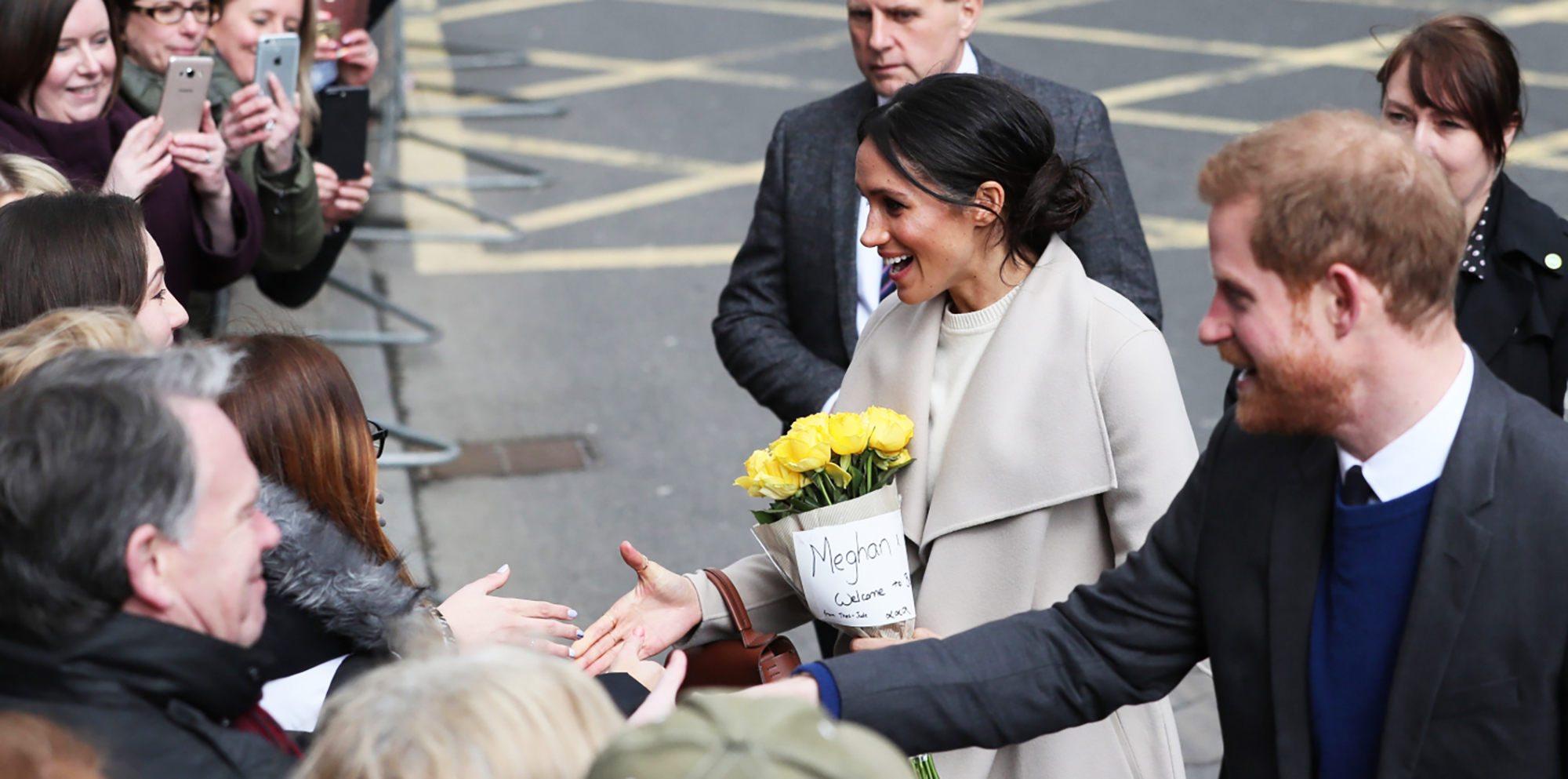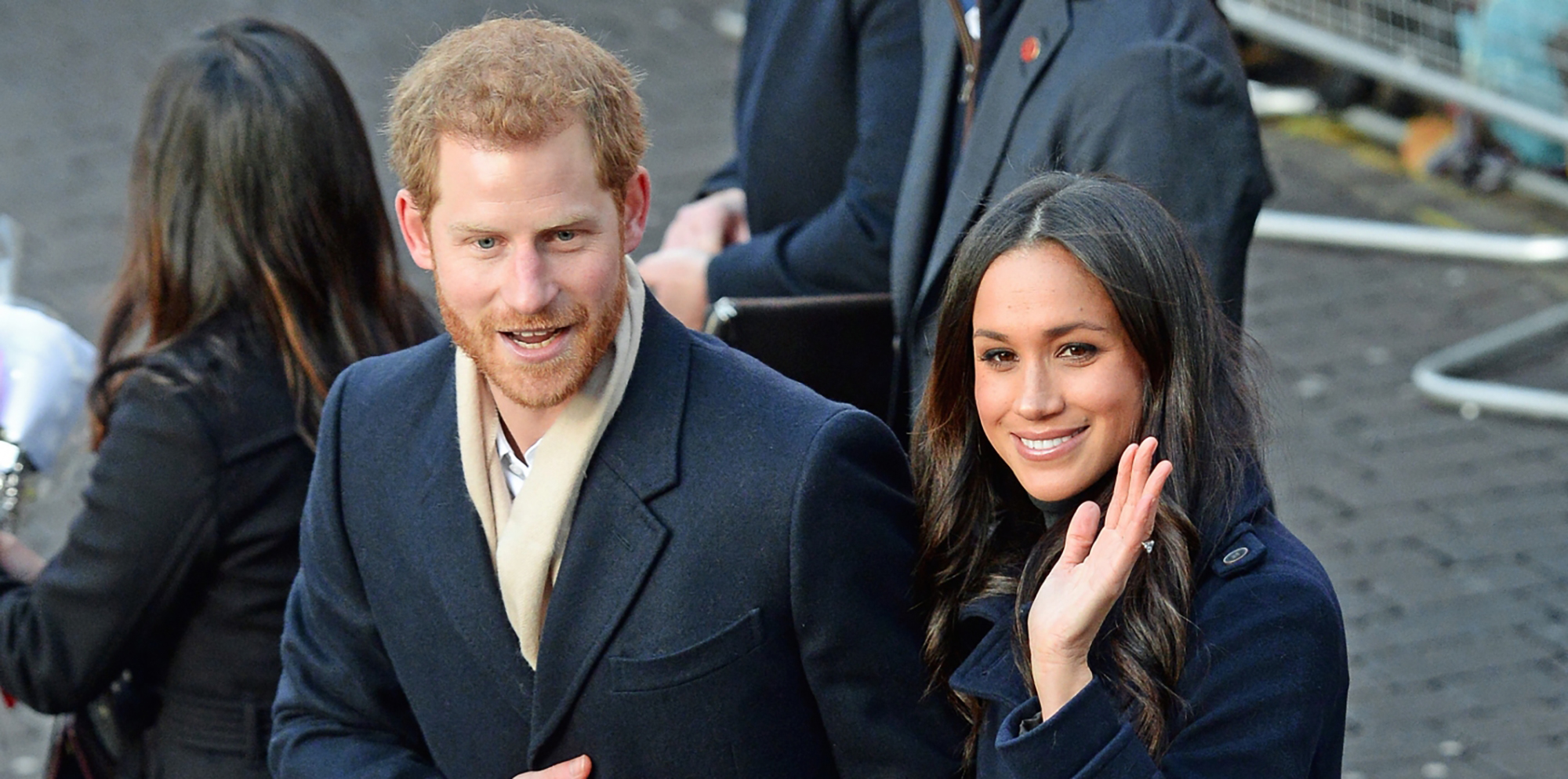
On Saturday, May 19, Prince Harry of the British royal family will marry American Meghan Markle, an actress and humanitarian from Los Angeles, in a midday service at St. George’s Chapel in Windsor Castle in England. Harry is the youngest son of the late Princess Diana and Prince Charles, grandson of Queen Elizabeth II, and sixth in line to the throne.
Although their forefathers revolted and fought a war to free themselves from British monarchial rule, Americans are captivated by the royal family and regal weddings. Nearly 23 million Americans watched the nuptials between Prince William and Kate Middleton in 2011, and watch parties are being planned across the country for Saturday’s ceremony joining Prince Harry and Markle.
Penn Today chatted with historian Alex Chase-Levenson, an assistant professor in the Department of History who specializes in modern Britain history and the British Empire, about the royal wedding’s importance and American intrigue.
Are you going to watch the wedding? Maybe. I’m certainly interested in it. My wife and I were just talking yesterday about whether we were going to watch it—of course, she’s Canadian, so perhaps as a technical subject of the monarchy, she has that connection to it. Whether we watch or not, I’ll certainly read the news and follow it.
It sounds like a pretty big deal, in the U.K. and elsewhere. It’s absolutely a big event in Britain. A royal wedding is always a big event. The current royal family has attracted a level of interest from the tabloid press, from newspapers of all kinds, from TV, in a way that’s relatively new simply because communications have changed so much and an expectation of access to all details of celebrations like this has grown. The global star power of Princess Diana and the lives of both of her children, Prince Harry and Prince William, has certainly captivated people in Britain and across the world. I think this royal wedding has the added interest for Americans and for British people of being kind of a multinational wedding. It’s not the first time an American has married into a royal family, but that’s always a big event here. And I think the British are interested in that aspect of it, too.
Why do you think Americans are so interested in the royal wedding? Is it because Prince Harry is marrying an American? Prince Harry is a subject of American tabloids and newspapers, and someone who lots of Americans are familiar with. Whoever he announced he was marrying, I think that would be a big deal here. The royal wedding of Prince William and Kate Middleton was certainly a global event and something many Americans followed, but I do think Prince Harry marrying an American actress and TV star is certainly increasing people’s interest here.
Why do you think Americans are so fascinated by the royal family in general? That’s an interesting question. I think the history of having been, very long ago, part of the British Empire is part of that connection. I think monarchy has a kind of glamour associated with it. In a country where we don’t have a monarchy or a formal aristocracy, these kinds of trappings that seem like representatives of another time are kind of captivating and exotic for people. The British Empire had a real global reach, and a legacy of that is, even now, the current queen is kind of a global figure. In the American press, if a story refers to ‘the Queen,’ I think most people assume that it’s the queen of the U.K. and of the Commonwealth realms rather than any of the other monarchs of the world. As celebrities, I think the Royal family always captivated people’s attention in the U.S., really going back to the beginning of this country—in terms of celebrity culture, if not politics. I don’t think the hard feelings of the American Revolution were particularly lasting.
What is the role of the royal family in the United Kingdom? The Queen has some ceremonial powers. Does the monarchy have any real power? Way back in the late 19th century, the British political writer Walter Bagehot said the British government is separated into two parts: the dignified part and the efficient part. And parliament is efficient and the monarchy is dignified. So even then when the monarch did have a little bit more power, people recognized that the monarchy was there primarily to symbolize a kind of national unity above politics as administrations change and parties rise and fall. The monarch’s role above politics began to solidify really in the course of the 19th century. Queen Victoria sometimes would make it known that she didn’t approve of a potential minister. Obviously, that’s something that would be highly unlikely to happen now. The Queen meets weekly with the prime minister, and while they discuss policies in private, she seems fairly conscientious about avoiding taking a clear stand on a political controversy. Though Prince Charles has been accused of meddling in politics by sending letters to government ministries, I don’t think the expectation that the monarch remains above politics will change when he becomes king.
When was the last time the monarchy was absolute? The monarch had real power in the sense of being important in politics fairly recently. In 1911, when the House of Commons, the lower house, wanted to take away the power of the House of Lords, the aristocrats who sat in the upper house of parliament, to veto laws, the prime minister pressured the king to intervene to promise to create new lords to make the vote go the way the House of Commons wanted. And the king agreed to that, so the king had a role in making sure the Parliament Act of 1911 passed. Going back a little farther, a monarch like George III would routinely intervene and make it known he would not accept certain laws, and favor certain politicians who would become prime minister. Britain really hasn’t been a totally absolute monarch ever in the sense of the monarch not having to care about other constituencies. The aristocracy in Britain has always been pretty powerful, and there has been a parliament for centuries going back in the earliest form to the Magna Carta in the 13th century. The monarchy really, since the early 20th century, has been more of a symbolic one, which is not to say it totally doesn’t matter. For example, when Edward VIII, the last monarch to marry an American, married Wallis Simpson, that was a huge political crisis in Britain. He had to abdicate being king. Not because she was American but because she was divorced, as indeed Meghan Markle has been, but that is no longer a huge issue.
Why do you think divorce is no longer an issue? Is it just a changing of the times? Yes, that’s not something that would scandalize people at all this time. It’s a real change from the 1930s.
Do you think it is noteworthy that Meghan Markle is of mixed race? If the monarchy’s role is to be a symbol, then the symbolic potential of Meghan Markle being of mixed race is certainly important. We were just talking about the idea that divorce seemed unacceptable a few generations ago. Well, it also would have been considered completely unacceptable for a member of the royal family to marry someone of mixed race. We have to remember how much the British Empire relied on racial hierarchies, and even after the empire receded into the past, racism remained a significant force in British society, unfortunately. So a symbol like this does matter.









